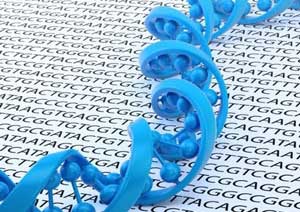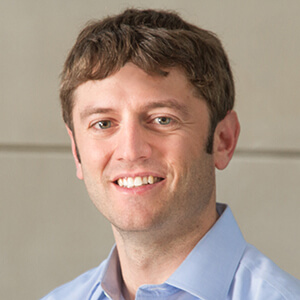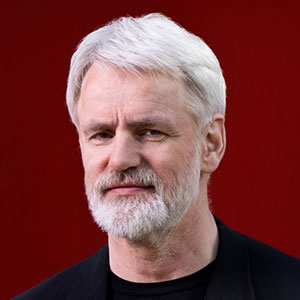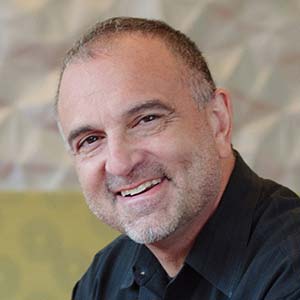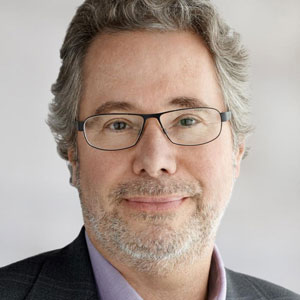Session Abstract – PMWC 2017 Silicon Valley
Session Synopsis: Genomic discovery has fueled major advances in medicine and drug discovery spanning rare diseases, cancer and broader precision medicine initiatives. Leaders of large-scale human genetics programs share their experiences and perspectives on the biggest successes, challenges and overall potential for the future of human genetics in transforming science to medicine.
Session Chair Profile
Biography
Dr. Baras serves as Vice President, Regeneron Pharmaceuticals and Head of the Regeneron Genetics Center (RGC), one of the largest human genetics programs in the world, spanning large-scale sequencing, informatics, and translational sciences using human genetics to advance and guide the development of Regeneron’s pipeline of important new medicines. He has established and leads several foundational genomics collaborations, such as with the Geisinger Health System to sequence at least 250,000 participants and with the UK Biobank to sequence 500,000 participants. The RGC has produced many high impact discoveries identifying new drug targets (such as HSD17B13 in chronic liver diseases), validating existing development programs (Regeneron’s evinacumab program targeting ANGPTL3, REGN3500 targeting IL33, and many more), and contributing important new gene discoveries and precision medicine strategies. The RGC has sequenced more than 300,000 individuals to date, collaborating with more than 60 institutions around the world, and plans to sequence the genomes of millions of participants across its studies. Previously, Dr. Baras held roles and responsibilities at Regeneron across R&D and business development. Prior to Regeneron, Dr. Baras contributed to other biotechnology ventures and conducted research spanning antibody based therapeutics, cancer research, and nanotechnology applications in drug development. Dr. Baras received his Bachelor’s of Science, M.D., and M.B.A., all from Duke University.
Speaker Profile
M.D., Dr.Med., CEO of deCODE Genetics
Biography
Kári Stefánsson, M.D., Dr. Med. has served as President, Chief Executive Officer and a Director since he founded deCODE genetics in August 1996. Dr. Stefánsson was appointed the Chairman of the Board of Directors of deCODE genetics in December 1999. From 1993 until April 1997, Dr. Stefánsson was a professor of Neurology, Neuropathology and Neuroscience at Harvard University. From 1983 to 1993, he held faculty positions in Neurology, Neuropathology and Neurosciences at the University of Chicago. Dr. Stefánsson received his M.D. and Dr. Med. from the University of Iceland and is board-certified in neurology and neuropathology in the United States. He has published numerous articles on the genetics of common/complex diseases and has been among the leaders of the world in the discovery of variants in the sequence of the human genome that associate with the risk of common/complex traits. Dr. Stefánsson was chosen by Time magazine as one of the 100 most influential men of the year for 2007 and by Newsweek as one of the 10 most important biologists of the 21 century. He was the recipient of the Jakobus Award 2007, The World Glaucoma Association Award for present scientific impact 2007, The European Society of Human Genetics Award 2009, The Andre Jahre Award 2009, and The Sir Hans Krebs Medal 2016.
Speaker Profile
M.D., Ph.D., Chief Scientific Officer and President of Regeneron Laboratories
Biography
Dr. Yancopoulos joined Regeneron in 1989 as its Scientific Founder. In the 1990s, Dr. Yancopoulos was the 11th most highly cited scientist in the world, and in 2004 he was elected to both the National Academy of Sciences and the American Academy of Sciences. Dr. Yancopoulos, together with key members of his team, is a principal inventor and developer of Regeneron’s four FDA-approved drugs – PRALUENT® (alirocumab) Injection, EYLEA® (aflibercept) Injection, ZALTRAP® (ziv-aflibercept) Injection for Intravenous Infusion, and ARCALYST® (rilonacept) Injection – as well as of Regeneron’s foundational technologies for target and drug development, such as its proprietary TRAP technology, VelociGene® and VelocImmune®. These technologies have produced Regeneron’s robust pipeline of fully human antibodies targeting eye disease, rheumatoid arthritis, atopic dermatitis, asthma, pain, cancer and infectious diseases. In 2014, Dr. Yancopoulos and his team launched the Regeneron Genetics Center, a major new initiative in human genetic research that has already sequenced exomes from over 100,000 people.
Speaker Profile
Ph.D., Chief Science Officer & Head of Therapeutics, 23andMe
Biography
Dr. Scheller serves as chief science officer and head of the newly formed therapeutics group at 23andMe. In his role, Dr. Scheller built a dedicated research and development team that will use human genetic data as the starting point for identifying new therapies for both common and rare diseases. Previously, Dr. Scheller served as executive vice president of research and early development at Genentech. Dr. Scheller also served on the faculty of Stanford University as a professor in the Departments of Biological Sciences and Molecular and Cellular Physiology and was an investigator at the Howard Hughes Medical Institute of Stanford University Medical Center. In 2013, Dr. Scheller received the Albert Lasker Basic Medical Research Award for discoveries concerning the molecular machinery and regulatory mechanism that underlie the rapid release of neurotransmitters. Dr. Scheller holds a Ph.D. in Chemistry from the California Institute of Technology. He was a postdoctoral fellow at the California Institute of Technology and Columbia University.

